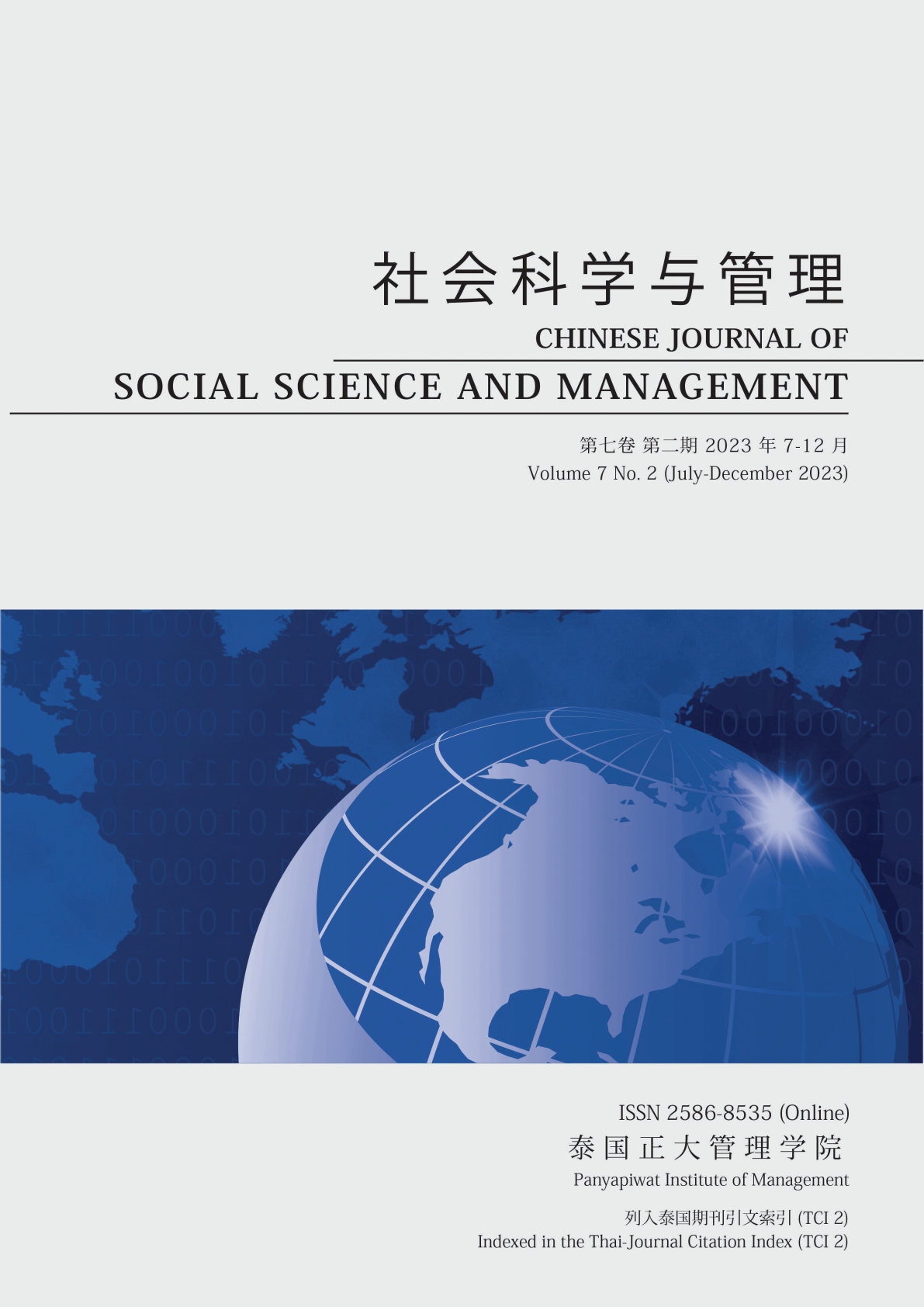THE INFLUENCE OF WORK PRESSURE ON WORK-FAMILY CONFLICT AMONG YOUNG UNIVERSITY TEACHERS
Main Article Content
Abstract
In this paper, a theoretical model of the effects of work stress on the work-family conflict of young college teachers was constructed by using emotional exhaustion as a mediator and organizational support as a moderator. The results show that the dimensions of work stress have significant positive effects on work-family conflict, and emotional exhaustion plays a partially mediating role. Moreover, perceived organizational support significantly moderates the effects of work stress on work-family conflict among young college teachers. Starting from the individual level, the family level and the organization and management level of the young teachers in colleges and universities, this research actively explores ways to relieve the work pressure of the young teachers in colleges and universities so as to avoid emotional exhaustion as much as possible. At the same time, this paper puts forward some pertinent countermeasures and suggestions to harmonize and balance the relationship between work and family and provides some strategies for optimizing the organization and management of colleges and universities.
Article Details

This work is licensed under a Creative Commons Attribution-NonCommercial-NoDerivatives 4.0 International License.
Chinese Journal of Social Science and Management Editorial Division
The Office of Research and Development, Panyapiwat Institute of Management
85/1 Moo 2, Chaengwattana Rd., Bang Talat, Pakkred, Nonthaburi 11120, Thailand
Tel. 02 855 01048 E-mail: cjssm@pim.ac.th
References
Baron, R. M. (1986). The moderator-mediator variable distinction in social psychological research: Conceptual, strategic, and statistical considerations. Journal of Personality and Social Psychology, 51(6), 1173-1182.
Cavanaugh, M. A., Boswell, W. R., & Boudreau, J. W. (2000). An empirical examination of self-reported work stress among U.S. managers. Journal of Applied Psychology, 85(1), 65-71.
Demerouti, E., Bakker, A. B., & Nachreiner, F. (2001). The job demands-resources model of burnout. Journal of Applied Psychology, 86(3), 499-512.
Eisenberger, R., Huntington, R., & Hutchison, S. (1986). Perceived organizational support. Journal of Applied Psychology, 1(3), 500-507.
Gaines, J., & Jermier. J. M. (1983). Emotional exhaustion in a high stress organization. Academy of Management Journal, 26(4), 567-586.
Kahn, R. L., Wolfe, D. M., Quinn, R. P., Snoek, J. D., & Rosenthal, R. A. (1964). Organizational stress: Studies in role conflict and ambiguity. John Wiley.
Klein, K. J., & House. R. J. (1995). On fire: Charismatic leadership and levels of analysis. The Leadership Quarterly, 6(2), 183-198.
Liao, G. L. (2017). Research on the composition of high-performance work systems in colleges and universities and its impact on young teachers’ work-family conflicts [Doctoral dissertation]. Beijing Jiaotong University. [in Chinese]
Ling, W. Z., & Zhang, Z. C. (2001). Research on the organizational commitment of Chinese workers. Chinese Social Sciences, 4(2), 90-102. [in Chinese]
Maslach, C., & Jackson, S. E. (1981). The measurement of experienced burnout. Journal of Organizational Behavior, 2(2), 99-113.
Netemeyer, R. G., Boles, J., & Mcmcrrian, R. C. (1996). Development and validation of work-family conflict and family-walk conflict scares. Journal of Applied Psychology, 81(4), 400-410.
Robbins, S. (1992). Psychoanalytic counseling approaches. International Encyclopedia of Education, (2), 364-368.
Selye, H. (1976). Stress without distress. Bruxelles Medical, 56(5), 205-210.
Wu, M. L., & Tu, J. T. (2010). SPSS and statistical application analysis (2nd ed.). Wu nan Publishing House, 24. [in Chinese]
Zhang, L., Lin, Y. C., & Zhang, L. (2013). Work insecurity and emotional exhaustion: The mediating role of emotional labor. Journal of Management Science, 26(3), 1-8. [in Chinese]


